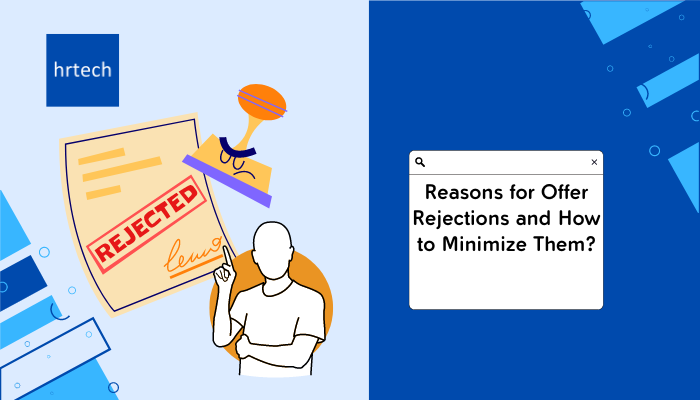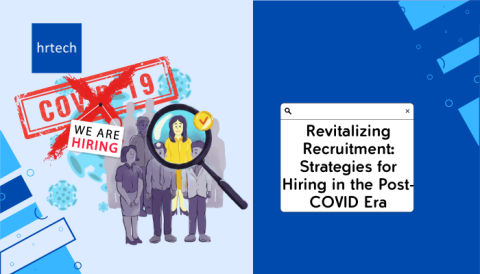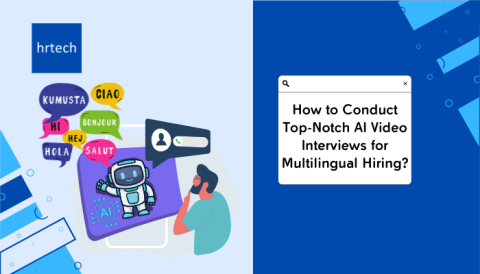Imagine the perfect scenario. There is a job requirement. You put out job postings on relevant platforms, have a good number of applicants, conduct the selection process, and Voila! You have found your perfect candidate.
by Vanishri Deshpande, CEO and Co-Founder, Spottabl

Well sometimes, the reality is the complete opposite. It often happens that the perfect candidate is found and just when you offer them the position, they reject the offer. This is a frustrating scenario many HR professionals dread because this means investing more energy and time while repeating the recruitment process.
Start-ups today, especially in Silicon Valley, are flourishing and the increase of talent density in the market is higher than ever. Job seekers have a plethora of job options, especially top talents, giving them huge leverage in the industry. And therefore, a major concern for the recruitment industry today is the high figures of offer decline ratios.
What could be the reason behind candidates refusing offers? Let’s find out.
1. Job Descriptions Ambiguity
The Great Resignation has been an eye-opener for recruiters regarding candidates’ expectations. There is no room for compromise. There is perfect clarity of what they want in their aspirational job- and this is exactly where the Job Description plays a crucial role. The Job Description is the first point of communication with a candidate and if it is confusing, too idealistic, or unclear, the candidate will simply move on to the next one.
Always ensure that communication to the candidate is not done in a ‘company first’ language but rather in a ‘candidate first’ tone. They are often written while keeping in mind who is the most ideal for the job. Write what you actually demand from the candidates in that position. Tell them what’s in it for them – growth, opportunity, learning, or anything else.
Vani, CEO, and Co-Founder of Spottabl quoted: “The company-first approach is old and dead. It is the candidate-first approach always. The Job Description should be related to the growth and opportunity of the candidate and then stitched with the company's growth.“
2. Unrealistic Employer Branding for Candidates
Recruiters often tend to over-promise. As a result, the candidates get impressed and start forming a certain perception about the company’s work culture, hierarchy and growth opportunities. That figment of the imagination is quickly shattered when the reality seeps in once the job begins. This causes disappointment and dissatisfaction among the chosen candidate who, after a short while, starts looking out for new opportunities.
This all leads to the loss of time, money, and effort of the employer organization. Invest time and effort in discussion with the candidates so that a realistic picture of the job is communicated to them.
3. Delayed Interview Processes
The average interview process takes an average of 23.8 days, but this varies greatly depending on the role. Executive positions and higher management roles require a series of interviews and tests, all of which will extend the total time from application to offer. A candidate who is actively seeking a job might just be lost since there is a high possibility of him getting other offers.
To prevent this, organize your interview plan ahead of time so there are no delays in your process. Investing time in aligning the rounds of the interview to have a crisp and smooth process is more feasible. Pre-designed interview rounds where the repetition of questions is avoided give off a very structured vibe. For example- clearly dividing the rounds as resume-related, functional, and HR rounds so as to avoid asking gap questions. Every interview round should have relevance. Remember to convey that to your candidate and set reasonable expectations about the length of your hiring process.
4. Poor Candidate Engagement
The most underrated and yet the most frequent mistake companies make is to not keep the candidate involved during the entire hiring process. Creating multiple touchpoints with the candidate and having candid conversations with them will help you gain trust and build a rapport with them.
Additionally, having non-work-related conversations with the candidate before their joining will help you get to know the person behind the profile.
Vani: “Engagement is making the candidate taste the culture, people, work, growth, and the upside of the organization before they start the job.”
5. Low Compensation Bar
Have you heard the candidate say “I have a better offer” and decline the compensation you are offering since another company paid better?
To lower declines, ensure that the candidate has been offered compensation commensurate with his experience and profile. Avoid useless or disrespectful negotiations that start low and are unrealistic. Refrain from negotiating to the last cent as it reflects poorly on the company.
Now that we are aware of the problem, what are the plausible solutions to it?
The harsh truth of today is that HRs of all the companies don’t have the bandwidth to scrutinize every candidate & with the immense amount of hirings happening across startups, low-quality candidates tend to enter the talent pool in some way or the other.
To stop that from happening and reduce the offer declines, we must ensure the following solutions to the mentioned problems are met.
Solution 1: Company-first Job Description
Write for the candidate. Talk about the company’s growth, culture, and the uniqueness the candidate is getting with the tole. Pitch it in a very candidate-centric way possible.
Solution 2: Keep in Touch with your Candidates!
Have multiple touch points with the candidate and make him feel involved in the process. This will also help you understand the candidate’s personality better. You will also know how keen they are on joining.
Solution 3: Follow Compensation Best Practices!
Offer the right salary to the right candidate if you want them to work in the company with satisfaction.
This is where Spottabl comes into the picture. We and our team will take all the load off your shoulders and our Specialist Recruiters will ensure that the best candidate in the market is there for the said role.
Needless to say, since the candidates will be hired via a thorough, personalized process, there will be a very low chance of candidate drop-offs later.
About the Author:

Vanishri (Vani) Deshpande has over 18 years of experience in various areas such as startup & strategic recruitment, talent branding, career guidance, business partnering, corporate training and people management. She is the founder of Spottabl, a Saas-enabled “Deep job platform”. She has worked as a recruiter at Microsoft Research Labs, AOL Online India, led management and organizational hiring at India’s homegrown e-commerce group Flipkart, has led Talent Acquisition teams at EFI and Practo and has been the VP – of Human Capital at Nexus Venture Partners.




